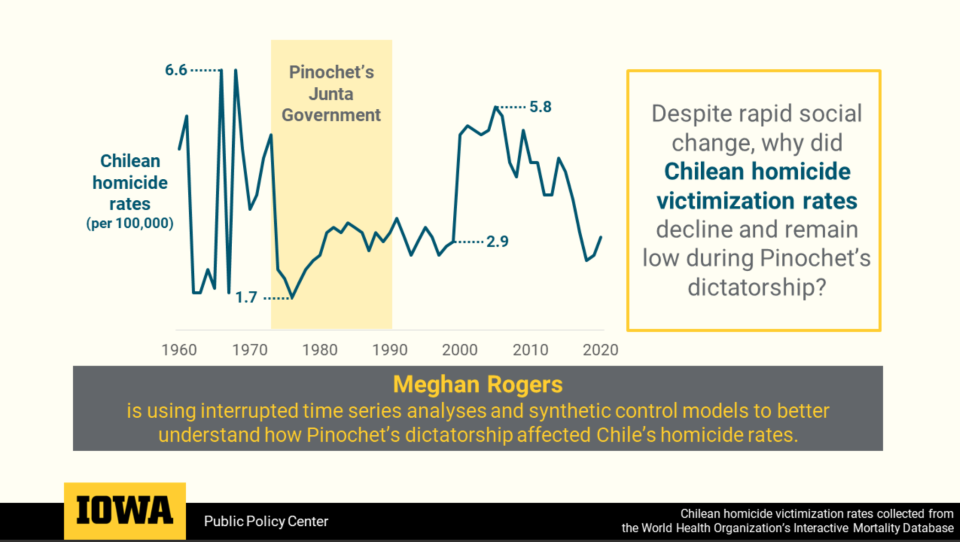Note: In September 2024, the Center for Social Science Innovation replaced the Public Policy Center and its subsidiary unit the Iowa Social Science Research Center.

Chile, located along the Pacific coast of South America, experienced nearly two decades of authoritarian rule during the 1970s and 1980s. On September 11, 1973, General Augusto Pinochet led a military coup that overthrew the socialist government of President Salvador Allende. Some of the darkest years of Chilean history followed, with thousands of Chileans imprisoned, tortured, or killed by the state. Then, in the late 1980s and early 1990s, Pinochet's influence receded, and democracy was restored.
Given the abrupt social changes during the Pinochet dictatorship, experts would predict an increase in homicide between citizens. Chile, however, defied this expectation. According to the World Health Organization, Chile’s homicide rates declined at the start of Pinochet’s regime in 1973 and remained low through the 1980s and 1990s. Meghan Rogers, assistant professor of Sociology and Criminology, is using interrupted time series analyses and synthetic control models to better understand these homicide trends.
Rogers first became interested in Chile’s homicide rates from a personal connection. “My partner’s dad was in Chile when Pinochet was in reign, and he was telling us stories about his life there.” Rogers said. “He couldn’t go out after dark, or he would get shot – that is what got me researching this topic.”
Finding a reliable measure of international crime rates, however, can be challenging. It is difficult to establish a universal standard of what counts as a crime versus what does not. To address this challenge, Rogers relied on WHO's homicide database, focusing specifically on homicide rates in Chile. “With homicide, we know the definition is going to be the same no matter what nation it is.” Rogers said. “Also, if the WHO does not trust the nation, there will be a census of death certificates, which was what was done in Chile during Pinochet’s reign.”
Rogers has completed the first half of her analyses for her project and is currently drafting a manuscript for peer review. She also hopes to eventually submit a National Science Foundation (NSF) grant proposal on this topic.
